Indigenous Governance Database
Environment and Natural Resources
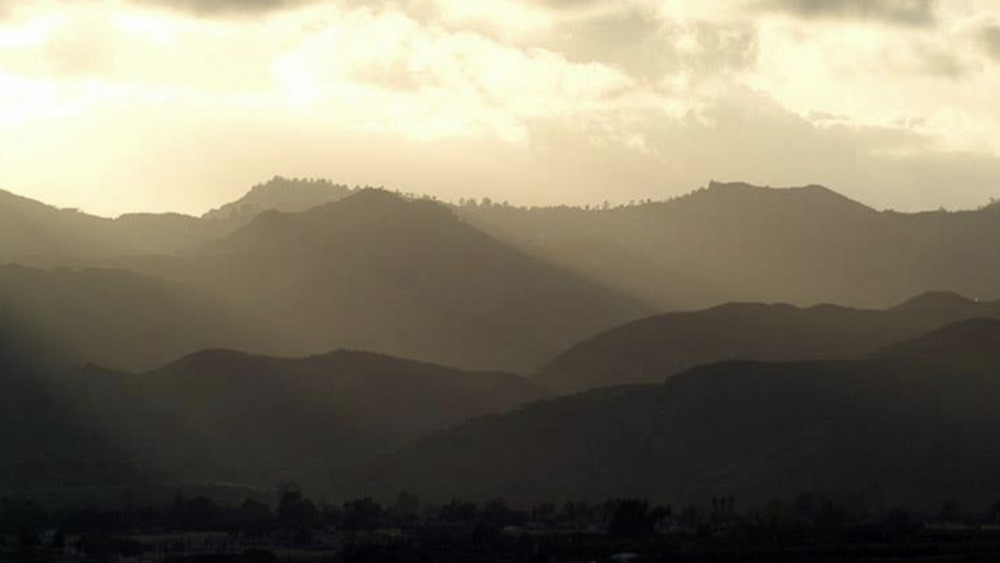
Chemşhúun Pe'ícháachuqeli (When our Hearts are Happy): A Tribal Psychosocial Climate Resilience Framework
Tribes are keenly aware of the interconnection between health, nature, and personal wellbeing. Leading experts in climate change and wellbeing are increasingly encouraging communities to be proactive about protecting and building psychological, social, cultural, and spiritual wellbeing. Often…
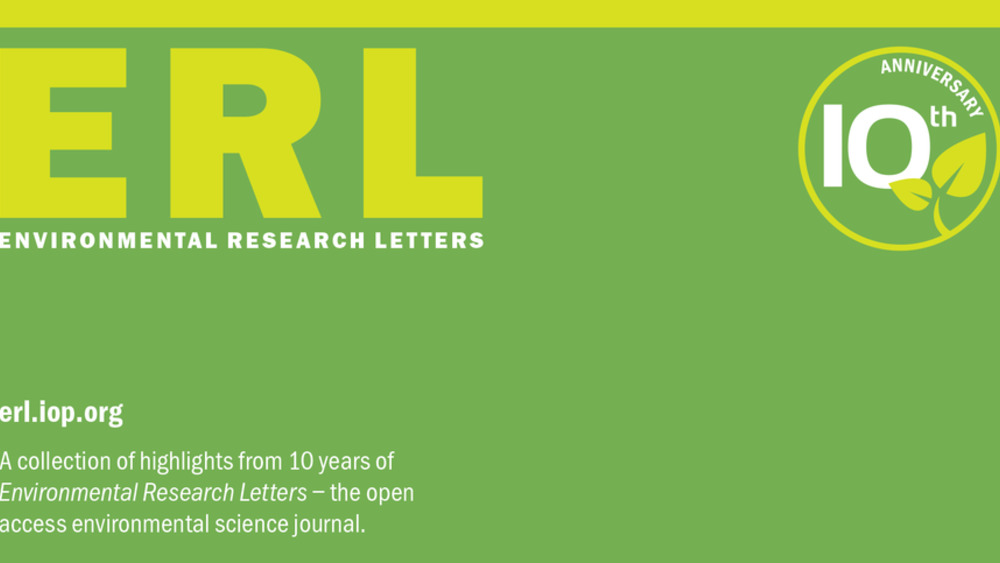
A global assessment of Indigenous community engagement in climate research
For millennia Indigenous communities worldwide have maintained diverse knowledge systems informed through careful observation of dynamics of environmental changes. Although Indigenous communities and their knowledge systems are recognized as critical resources for understanding and adapting to…
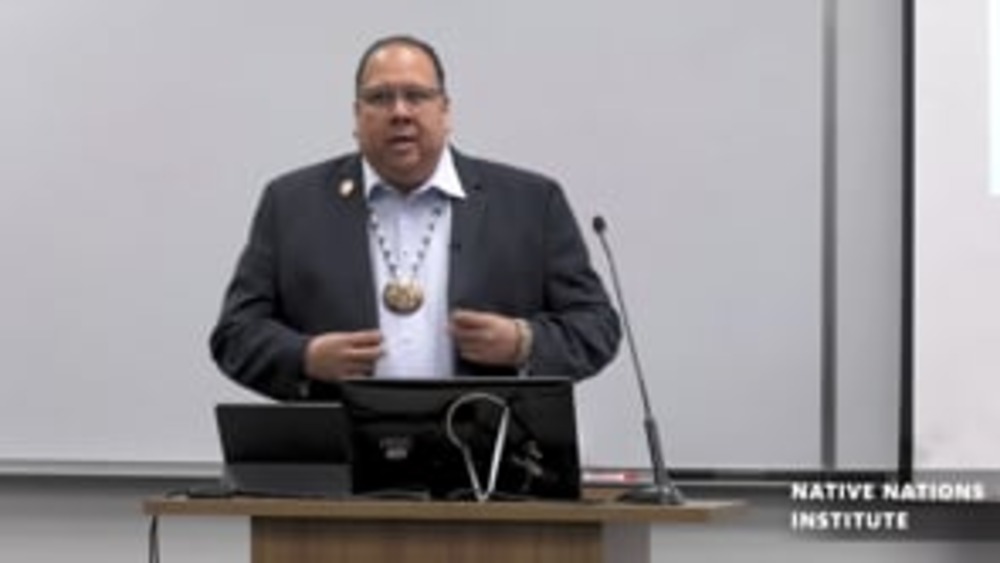
Governor Stephen Roe Lewis Distinguished Tribal Leader Lecture
Governor Stephen Roe Lewis of the Gila River Indian Community visited the University of Arizona to speak at January in Tucson: Distinguished Tribal Leader Lecture sponsored by the Native Nations Institute and held at the Indigenous Peoples Law & Policy program at James E. Rogers College of Law…
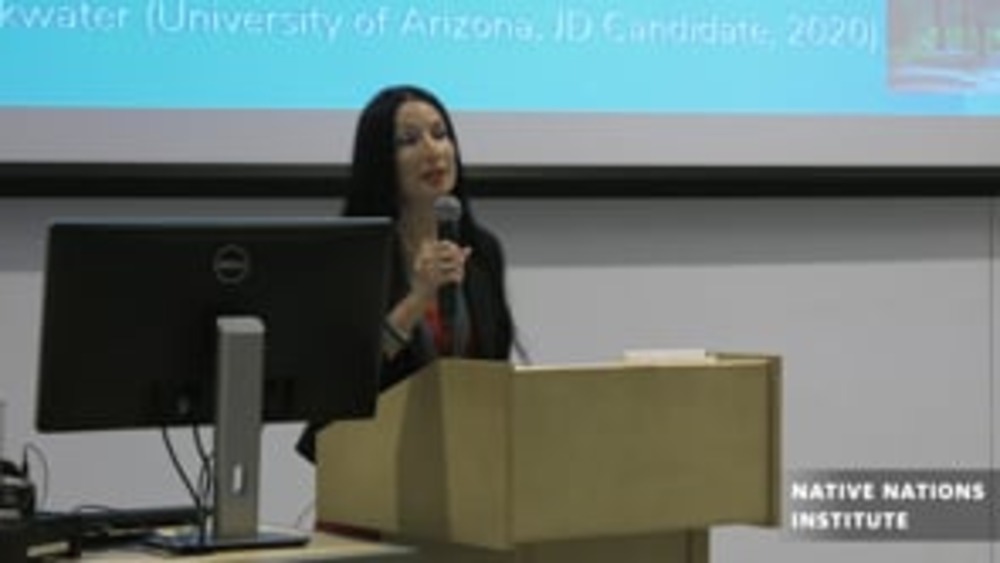
Rebecca Tsosie: Indigenous Sustainability and Resilience to Climate Extremes
The School of Geography & Development presented the “My Arizona” Lecture of Prof. Rebecca Tsosie, Regents Professor of Law at Univeristy of Arizona on Friday, November 1, 2019. Her lecture, "Indigenous Sustainability and Resilience to Climate Extremes: Traditional…
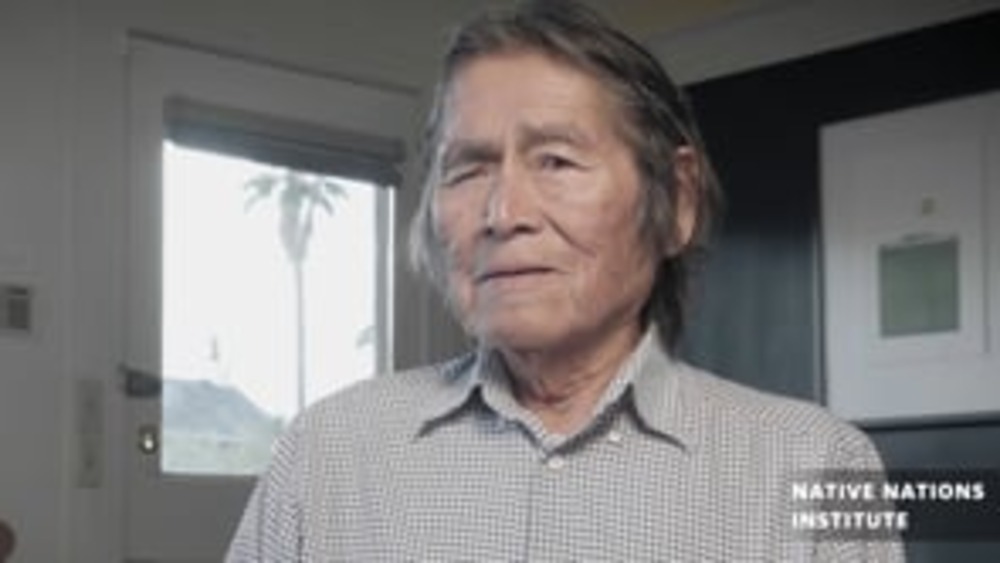
Vernon Masayesva: Self-Governance and Protecting Water
Former Tribal Chairman of the Hopi Nation and Executive Director of Black Mesa Trust, Vernon Masayesva relays his thoughts about advocating for self-governance and protection of water rights for Indigenous people. His pursuits in holding accountability of mining in Hopi territory has made Vernon…
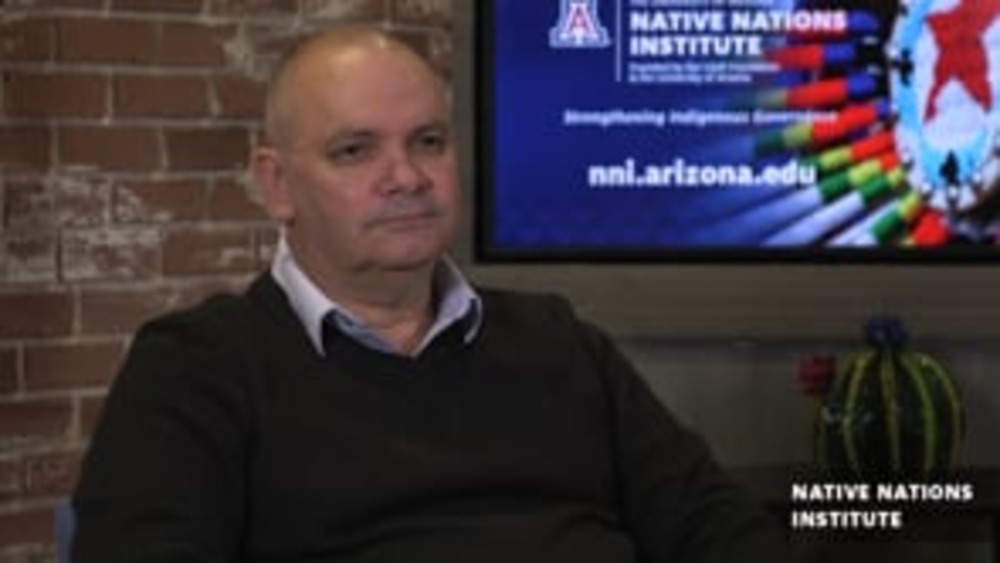
Daryle Rigney: Asserting Cultural Match and Native Nation Building in Australia
Daryle Rigney brings his expertise and first-hand experiences as a citizen of Ngarrindjeri Nation in South Australian to share his thoughts about Native Nation Building for the Ngarrindjeri Nation. He is a Professor of Indigenous Strategy and Engagement at College of Humanities Arts and…
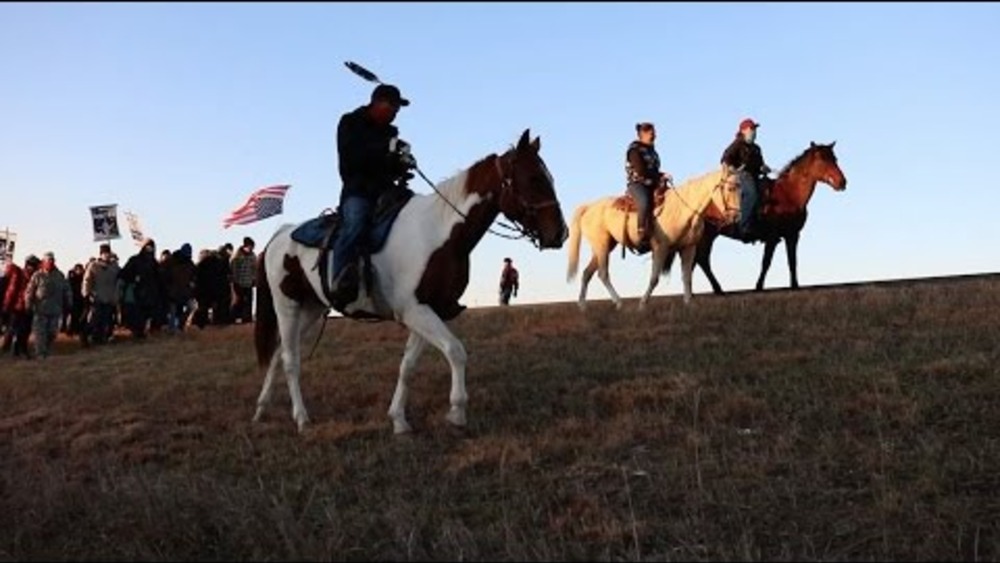
Water is Life video series Part 3 Mni Wiconi
The Native Nations Institute produced a three-part educational video series called, “Water is Life." The video series brings a Native nation building perspective to the conflict over the Dakota Access Pipeline and features interviews with LaDonna Brave Bull Allard, former tribal historic…
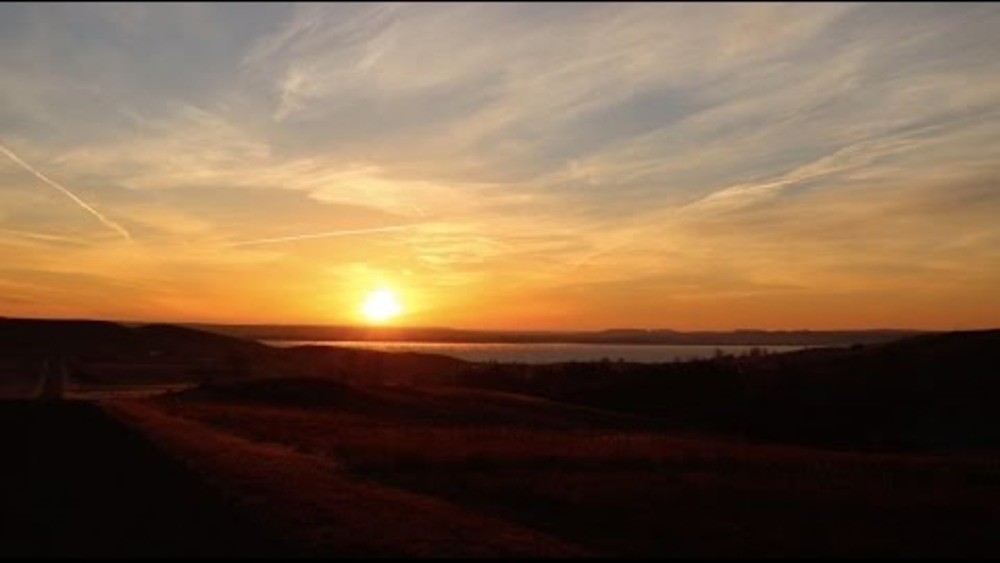
Water is Life video series Part 2 Oceti Sakowin
The Native Nations Institute produced a three-part educational video series called, “Water is Life." The video series brings a Native nation building perspective to the conflict over the Dakota Access Pipeline and features interviews with LaDonna Brave Bull Allard, former tribal historic…
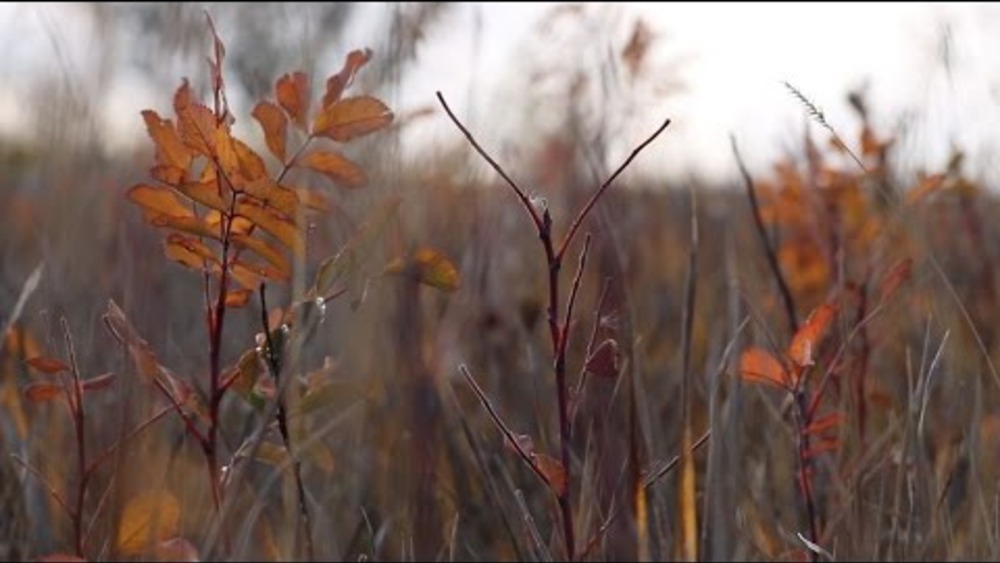
Water is Life video series Part 1 The Lakota and Dakota People
The Native Nations Institute produced a three-part educational video series called, “Water is Life." The video series brings a Native nation building perspective to the conflict over the Dakota Access Pipeline and features interviews with LaDonna Brave Bull Allard, former tribal historic…
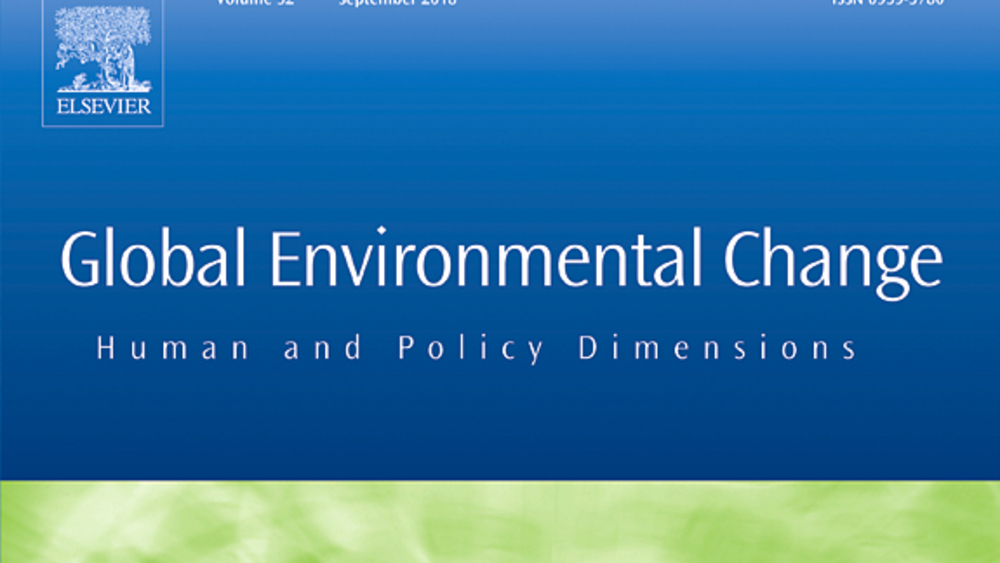
Preparing for the health impacts of climate change in Indigenous communities: The role of community-based adaptation
Climate change presents substantial risks to the health of Indigenous peoples. Research is needed to inform health policy and practice for managing risks, with community based adaptation (CBA) emerging as one approach to conducting research to support such efforts. Few, if any, studies however…
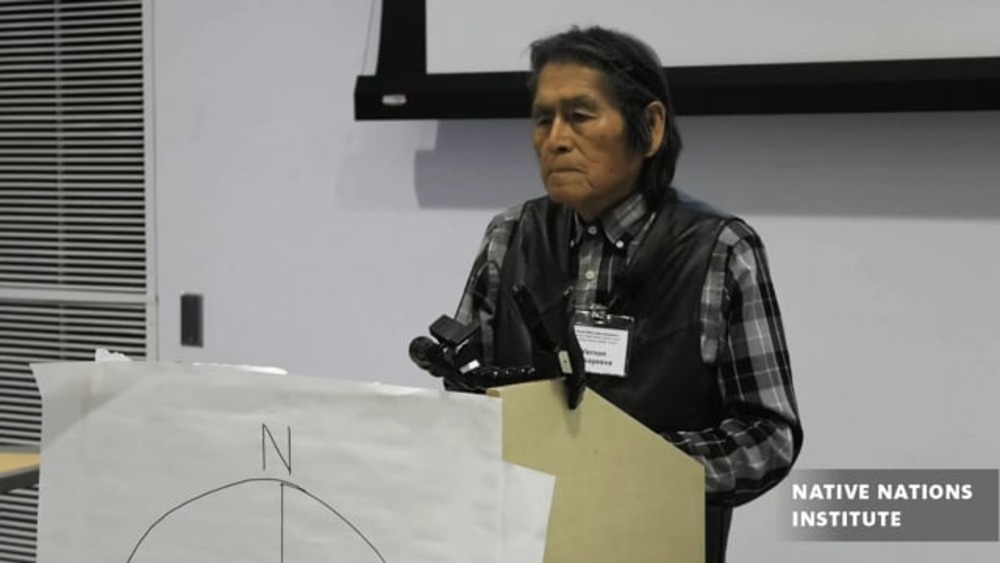
Vernon Masayesva Keynote: Water Ethics Symposium
Vernon Masayesva (Hopi) is the Executive Director of Black Mesa Trust and leading advocate for protecting water resources for the Hopi Nation. He's a Hopi Leader of the Coyote Clan and former Chairman of the Hopi Tribal Council from the village of Hotevilla who has worked for decades…
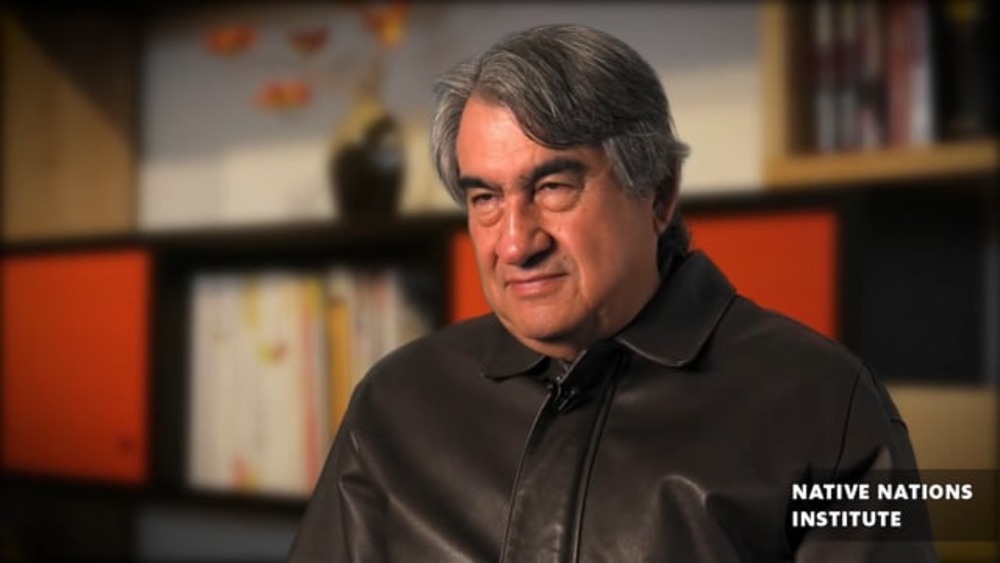
Greg Cajete: Indigenous governance and sustainability
Greg Cajete, Tewa of the Santa Clara Pueblo and a renowned scholar and author on indigenous education serves as the Director of Native American Studies at the University of New Mexico. His works have merged native history, cultural practices, and knowledge into the cross section of education…

Ahwahsiin (The Land/Where We Get Our Food)
Indigenous Peoples’ knowledge and food systems are fast disappearing but are of the utmost importance, not only for sustaining Indigenous Peoples but also for providing alternative paradigms for coping with diverse ecosystems in a changing global environment. This research examines Blackfeet…
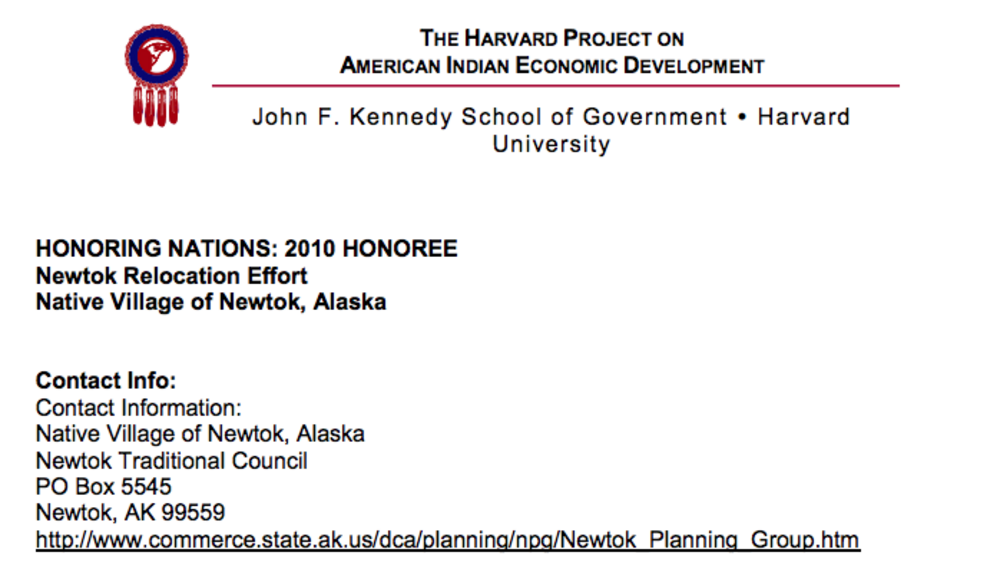
Newtok Relocation Effort
Scientists and politicians spend hours debating the facts of climate change, but in many places damaging changes to the local environment are already a reality. In the past decade, more and more human settlements have been threatened by catastrophic flooding, wildfires, or drought caused by…
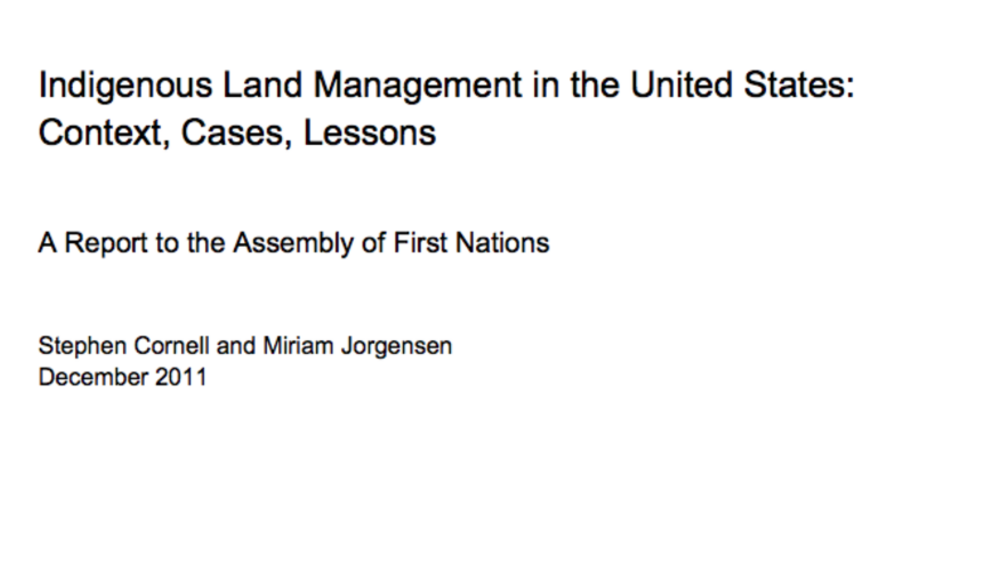
Indigenous Land Management in the United States: Context, Cases, Lessons
The Assembly of First Nations (AFN) is seeking ways to support First Nations’ economic development. Among its concerns are the status and management of First Nations’ lands. The Indian Act, bureaucratic processes, the capacities of First Nations themselves, and other factors currently limit the…
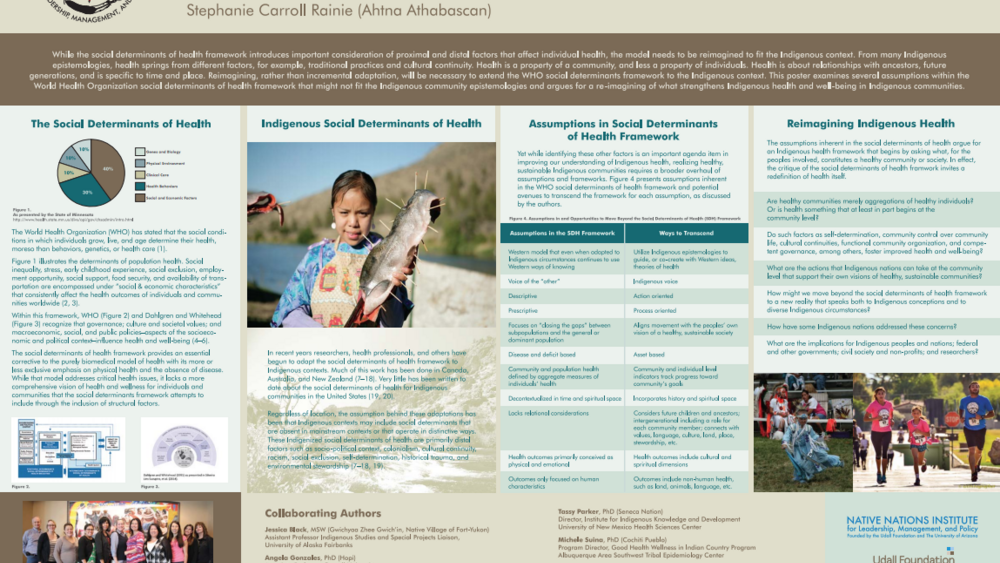
Reimagining Indigenous Health: Moving Beyond the Social Determinants of Health
Senior researcher Stephanie Carroll Rainie critiqued the application of social determinants of health models in Native communities and challenged readers to reconsider how they think about Indigenous health.
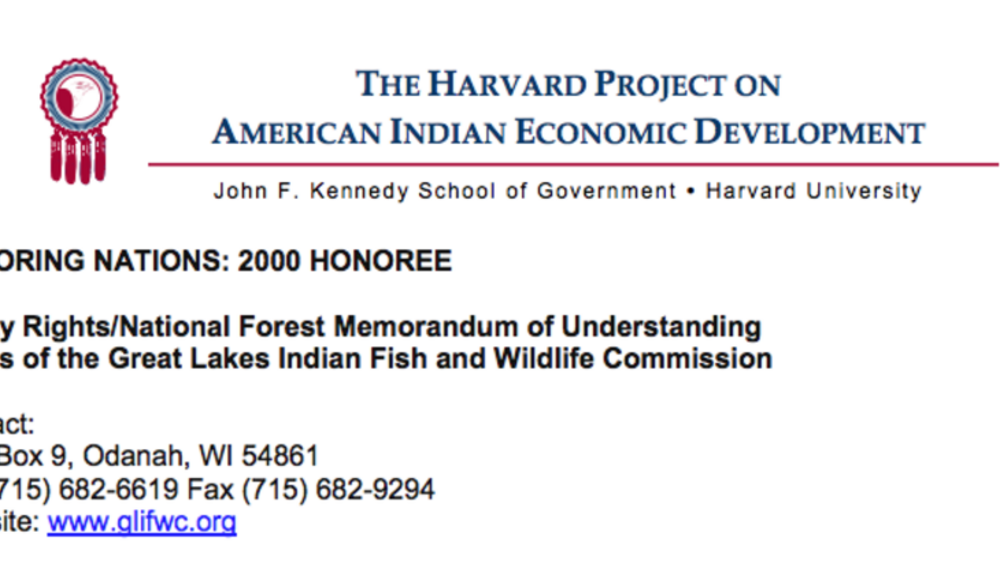
Great Lakes Indian Fish and Wildlife Commission's Treaty Rights/National Forest MOU
The Great Lakes Indian Fish and Wildlife Commission (GLIFWC), a tribally chartered intertribal agency, negotiated a memorandum of understanding (MOU) with the US Forest Service that both recognizes and implements treaty-guaranteed hunting, fishing, and gathering rights under tribal regulations and…
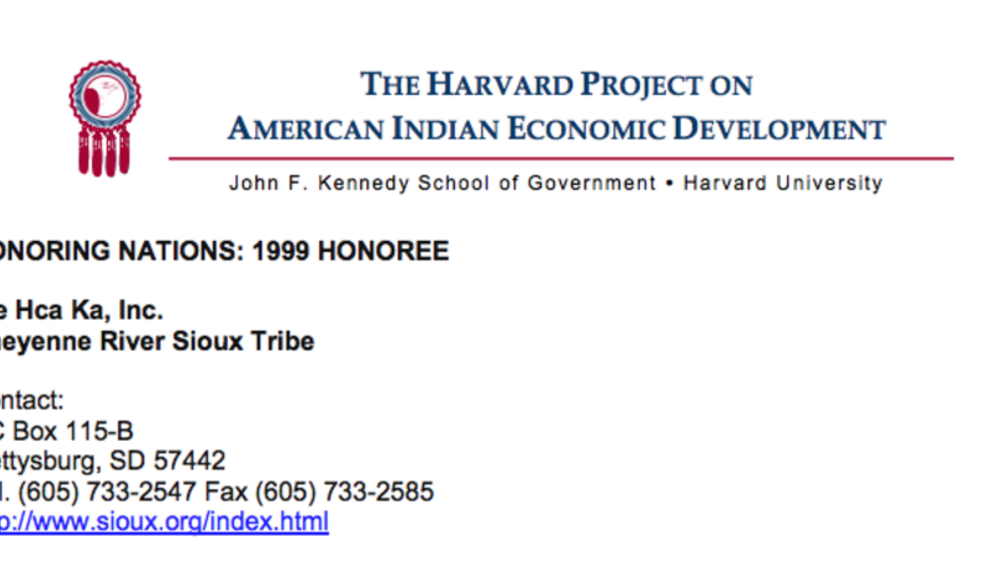
Pte Hca Ka, Inc. (Cheyenne River Sioux Tribe)
This tribally chartered corporation developed a culturally compatible management system for reestablishing buffalo as a focal point for socio-economic development, community cohesion, and self-determination. Pte Hca Ka, Inc. operates a mobile meat processing facility, and is currently seeking…
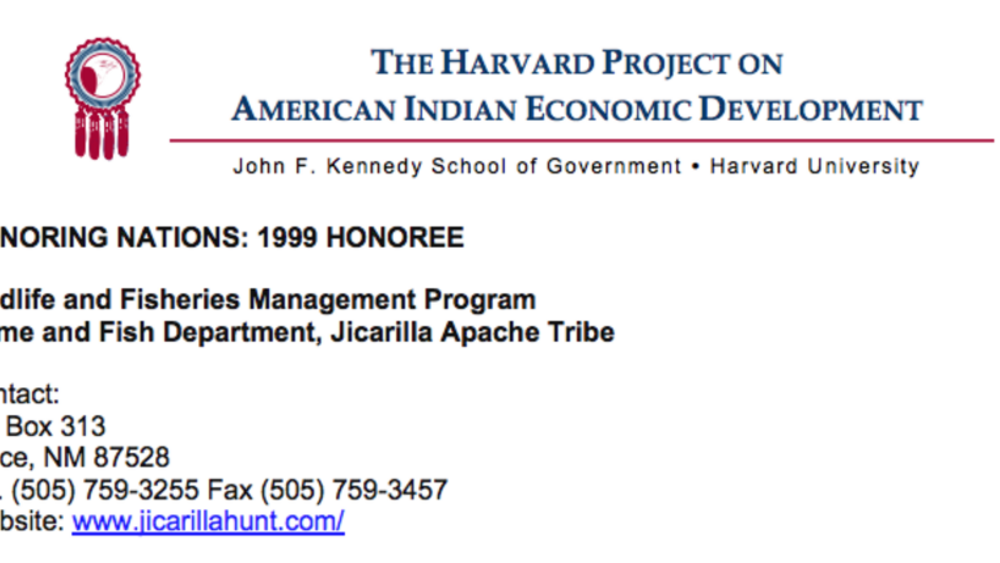
Jicarilla Apache's Wildlife and Fisheries Management Program
Recognized by state game and fish agencies as being one of the best of its kind, JGFD’s program includes a game and fish code and a wildlife management fund for habitat enhancement projects. The program restored the reservation’s mule deer population and trophy trout, and established a commercial…
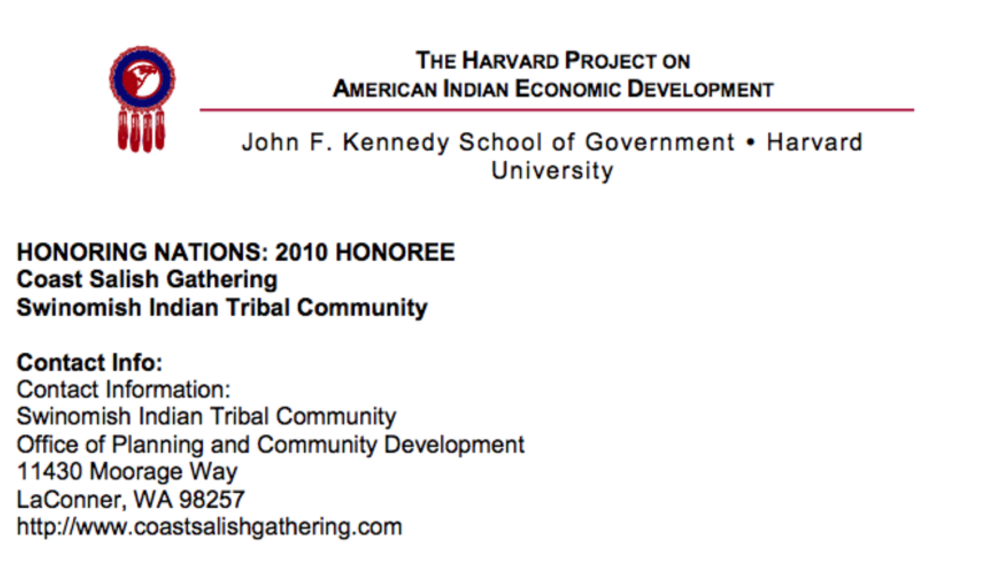
Coast Salish Gathering
Ecosystems in many parts of North America are under severe stress. Pollution, the overuse of natural resources, and habitat destruction threaten local flora and fauna. Conservation attempts often fall short because they target one species of site within an ecosystem. The Coast Salish Gathering…
Pagination
- First page
- …
- 1
- 2
- 3
- …
- Last page
